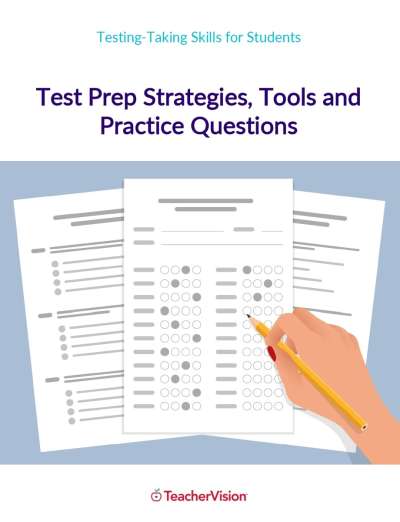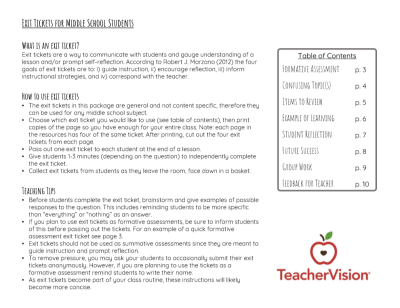What to do with a Redwall book? Read it, enjoy it, savor it. As with any good book, that is what we want most for our young people. This is particularly so of the books in the Redwall Epic because they were first discovered by young readers. Using their love of these books as a base, how can we share the books even further with them, extend the life of the books in creative and imaginitive ways that will increase their experience with them.
Although these activities stretch across the curriculum, the main intent is to increase rich and interesting discussion. As with any activities based on literature, it is important that young readers of the Redwall Epic be given choice. As the books truly belong to them, so should the activities.
Language Arts
Characterization
1. There are many characters in the Redwall tales and, while some characters appear in more than one book, many others do not. In each book, however, the characters assume various roles. Some of those roles are: Heroes, Assistant Heroes, Villains, Assistant Villains, Enemies Turned Friends, Innocents, Comic Relief, Sages, and Spies. Deciding which characters take those roles in each book in the tales can lead to some interesting discussion. In Redwall, those roles might be:
Hero: Matthias
Assistant heroes: Constance & Abbot & Basil Stag Hare
Villain: Cluny and Asmodeus
Assistant Villain: Shadow, Asmodeus
Enemy turned friend: Warbeak
Innocents: Colin Vole & family, Cornflower, Inhabitants of Redwall
Comic Relief: Basil Stag Hare
Sage: Methuselah
Spies: Old Sela & Chickenhound
2. Most characters in the Redwall tales are either good or evil except for a few turncoats who change sides. Charts can be made in which these characters are listed according to affiliation. There are, however, a few characters who may not fall into either category. Asmodeus, for instance, is an adder who appears in Redwall. He holds the sword of Martin and is indeed fearsome, but is he evil or is he just acting as his species demands?
3. Another activity for studying characterization is to make a silhouette of one of the characters. On the silhouette, place descriptive words for that character. Draw lines from each of those adjectives to the outside of the silhouette. At the end of each line place events from the book that show evidence of that characteristic.
4. Compare the male and female characters in selected Redwall tales. Does Brian Jacques assign traditional roles to each sex? Cornflower in Redwall takes on a traditional female role as nurturer, admirer, and cook. Constance, however, takes on a less docile role and becomes a leader in battle. Analyze other books for similar sex roles.
5. Character can also be approached through changes. In most books one or more characters make obvious changes in their behavior or personality. Other characters don't change at all. Analyzing the changes makes for good discussion. Who changed? What caused those changes? If other characters have no part in these changes, why are the characters there? Draw symbols such as buds to flower or caterpillars to butterflies to show the changes in main characters in the Redwall tales.
6. This discussion can be broadened to talk about the ways in which we change, and the ways in which we are both good and bad. How are we all heroic? How are we all less than we should be? Is there anyone we know, or know in our society, who is above this dichotomy - like Asmodeus?
Symbolism
In each book there are one or more symbols, some of them more obvious than others. In Redwall the tapestry of Martin the Warrior is a symbol of the heritage of the Abbey. When Cluny steals it, it is a symbol of his victory over the inhabitants of Redwall. The sword of Martin the Warrior is symbolic in a similar way but the symbol of the rose in that same book is more subtle and some students may miss it. It shrivels when the tapestry is gone, appears as a vision to Matthias when he is ill, and is in full bloom when the Abbot dies. In Pearls of Lutra, the pearls are the object of a quest but they are also symbolic. Suggest that students find symbols in the other books, and discuss their meaning and use.
Plot Analysis
1. Find a way to show graphically the climax and anticlimax in the action of each book in the Redwall tales. This can be done by building a flow chart of the major events in a book and then deciding which of these is the most exciting part. On page 11 of this guide, we list ten major events from the book Redwall. Help students see which of these is a major event (probably when the sparrows and shrews, under Mathias's leadership, retake Redwall). The events that follow the climax help to tie up the loose ends and show the return of peace to Redwall.
2. What happens to each of the main characters ultimately? If they die, what causes their death: battle, time, accident?
3. Acts of bravery and cowardice can also be listed and a debate over the bravest and most cowardly deeds could take place with students citing evidence for their choices.
4. In many of the books, the characters solve a riddle or series of riddles. Analyze the way in which they do so. Is it by accident, skill, consultation, luck, or a combination of these that helps them solve each riddle?
5. In many of the books there are omens of approaching danger. These foreshadow the action to come. In Redwall these omens include: the later-flowering rose and Cluny's nightmare in which everything is shrouded in red mist. Find similar omens in other books in the Redwall Tales.
6. Many stories, especially those in the Redwall Tales, involve quests - a character in search of something. List as many quests as possible from the Redwall books. Try to determine whether or not each quest was successful and if it failed, did it conflict with someone else's quest? Find a graphic way of showing your discoveries. What other quests can students think of that they might have read or seen elsewhere or experienced for themselves?
Writing
1. Invent a character which could have a role in a future book in the Redwall Tales. Describe it both physically and emotionally and whether it will work for good or evil. Make a character card for your character and use it, together with the characters developed by others in the class, for a Redwall adventure or use it to play in one of the Internet clubs based on Redwall.
2. Look at the riddles in the books. Some are anagrams such as in Redwall where the words "Am that is" are an anagram for the name Matthias. Using the characters in the books, create your own anagrams.
3. Set a scene, using sensory language to describe the details of the place and create a mood: wary, frightening, joyful. Using the same "place," see how a mood can be changed by the selection of words.
4. Create a dialect of your own for two characters, and let them come into conflict over an object that they both want.
5. Create a climactic moment using a physical event. Allowing a hero as the central character in such a scene, let him or her move from a peaceful moment to a threatening one, using a physical obstacle, such as a waterfall, a cave, a storm, or some obstacle of the young writer's invention.
Science
1. Brian Jacques uses many different animals in the Redwall Tales. Make a list of them and then decide what qualities in these animals suit them for the purpose Jacques uses them. If Brian Jacques had made the characters in the Abbey larger animals such as horses instead of mice, what would that do to the characters he uses as villains? What changes would have to be made?
2. In many of the books simple machines are used. For instance, in Redwall Constance constructs a crossbow, the rats construct a siege tower and Killconey uses a fulcrum and lever to right the cart. Make models of any of these., Use your imagination!
Social Studies
1. There are maps in most of the Redwall books and all of the action takes place somewhere in relationship to Mossflower. Make a large map on which all the major scenes of the Redwall books are indicated. Make sure that your locations agree with the information in the books and that it includes a map key and mileage indicator. Consult your social studies textbook to see what map skills are needed. Use those skills on the Redwall map adding whatever information is necessary.
2. Although the Redwall books are fictional, there are some items and events which have parallels with those in world history, particularly the Middle Ages. The use of standards, for instance, the creation of tapestries and the construction of fortresses and castles. Find as many of these instances and parallels as possible.
Art
1. In Redwall, Cluny carries a standard bearing a skull and, for a time, the tapestry of Martin the Warrior. Design symbolic standards for any character in the Redwall Tales that intrigues you.
2. Design a board game using the Redwall books. You could use one space bearing a picture of the Abbey to represent safety and reward. The object of the game can be to retrieve an object or to gain points or food. Make sure that the game is attractive and playable.
3. Construct a model of Mossflower and its environs.
Some Delicious Redwall Recipes
Hotroot Soup
1 net full of watershrimp (shrimp)
1 pawful (handful or less) of hotroot (mix of hot chile pepper and
crushed pepper)
3 red potatoes
1 large tomato
1 cup of noodles
a dash of salt
1 stick celery
3/4 cup of corn
Water
Boil potatoes in water. When almost soft, take off stove and let sit for about five minutes. Add noodles, celery, and shrimp (already cooked) to the potatoes and simmer. When almost done, cook corn. When corn is done, throw that in too, along with tomatoes. When hot to your liking, throw in as much hotroot and pepper and salt as y' like. Enjoy! (Please be careful: very spicy and hot!)
Strawberry Scones
Dough
1 cup strawberries
2 1/2 cups flour
4 T. sugar
2 tsp. baking powder
dash of salt
6 T butter
2/3 cup of milk
Topping
1 cup heavy cream
1/4 cup sugar
1 tsp vanilla
Heat oven to 425 degrees. Dice strawberries and set aside. In a bowl, mix the dry ingredients. Add butter and blend until it is crumbly. Stir in strawberries and toss. Add milk. Mix with fork until it holds together. With floured hands form into two balls. Roll on floured surface into 2 circles 1/2 inch thick.
Cut like a pie into 6 or 8 slices each. Place on greased cookie sheet and bake for 10 to 12 minutes, or until golden brown. While scones are baking, whip the cream, sugar, and vanilla in a cold bowl, until stiff. Serve warm with whipped cream.
Gonff's Cordial
20 ounces of Sprite
10 ounces of grape juice
10 ounces of orange juice
a tad bit of lime juice
Mix them all together and stir. Serves 5. Great cold over ice.







